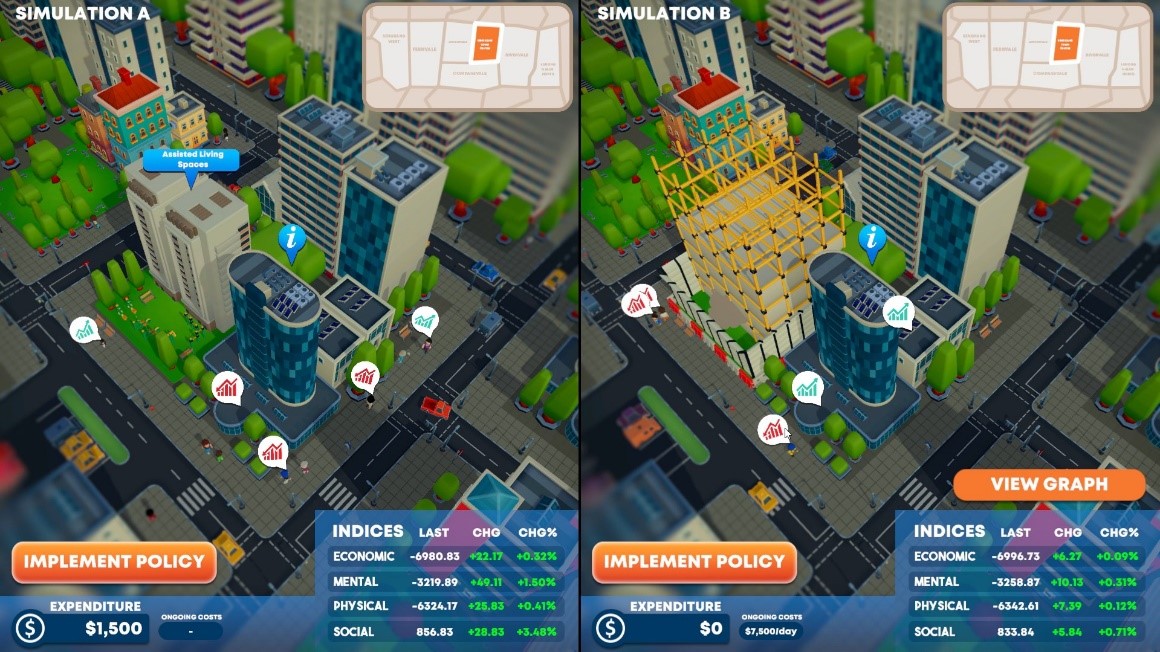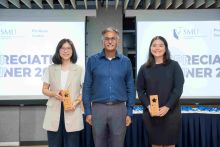Creating communities that care: ROSA Symposium highlights

A new study from SMU Centre for Research on Successful Ageing (ROSA) has revealed that both physical infrastructure and social connections are integral to enabling older adults to age in place, with both factors contributing significantly to their overall well-being.
These findings provide important insights into how built and social environments can foster a sense of attachment, social inclusion and identity for Singapore’s growing demographic of older adults.
The findings are from a new and ongoing study which was discussed at ROSA’s fourth annual Symposium on Successful Ageing, hosted on 22 October 2024 at SMU.
Themed “Creating Age-Friendly Environments: Fostering Successful Ageing”, the event was attended by more than 200 members of government, academia and industry.
A desire for continuity and stability while ageing in place
The study highlighted that 82.75 per cent of older adults expressed a strong preference to remain in their current homes as they age – results that are a clear indication of the desire for continuity and stability, which are supported by accessible amenities and a strong sense of community.
Among the 17.25 per cent who indicated plans to relocate, 57.86 per cent wished to downsize, while 11.67 per cent were interested in public assisted-living options. Those who intended to move out reported a lack of attachment to neighbourhoods, higher feelings of social isolation, fewer nearby amenities, smaller social networks and less social support.
Some of the key amenities identified for ageing in place are transportation services, medical facilities, nearby shops and eateries, with 80 per cent of respondents ranking these as important or very important. In contrast, only 56.41 per cent rated community centres as important or very important, and only 36.93 per cent rated childcare facilities as important for ageing in place.
In addition, the study also found living arrangements to be unrelated to how attached respondents felt towards their neighbourhoods. There was a positive association between this sense of attachment and respondents’ overall well-being, indicating that older adults’ sense of continuity and identity with their neighbourhoods does have a relationship with their well-being.
"Our study deconstructs what makes ageing in place a palatable option for older adults. It depends on access to age-friendly amenities and social environments that foster place attachment, social inclusion, and a sense of belonging,” said Professor Paulin Straughan, Director of ROSA, underscoring the importance of these findings.
“We are exploring how 'family' can extend beyond the home to the community, ensuring seamless transitions as individuals age.”
To obtain these results, researchers at ROSA polled 6,020 Singaporeans between the ages of 53 to 79 (inclusive) in September 2024. Drawing data from the Singapore Life Panel®, a population representative monthly online survey that has been conducted since 2015, this study was made possible through the generosity of The Ngee Ann Kongsi and the support of the Ministry of Education.
Facilitating discussion that feeds into applied research
This year’s Successful Ageing symposium featured contributions from local and global experts that explored how research and policies influence the well-being and community integration of older adults, and highlighted strategies that foster supportive environments for older adults to age gracefully within their communities.
This is in line with the national Age Well SG programme, which was launched by Singapore’s Ministry of Health, Ministry of National Development and Ministry of Transport to support seniors in ageing well in their homes and their communities.
The dialogue at the Symposium aimed to examine the concerns around ageing in place, and facilitated ROSA’s efforts to continue translating its applied research, drawn from the SLP. The SLP has an average response rate of about 7,200 respondents per month and is web-based, allowing ROSA to collect monthly data to understand ageing trends in Singapore.
Through this area of focus, the University seeks to drive solutions in managing climate change and sustainable city living, enhancing quality of life.



